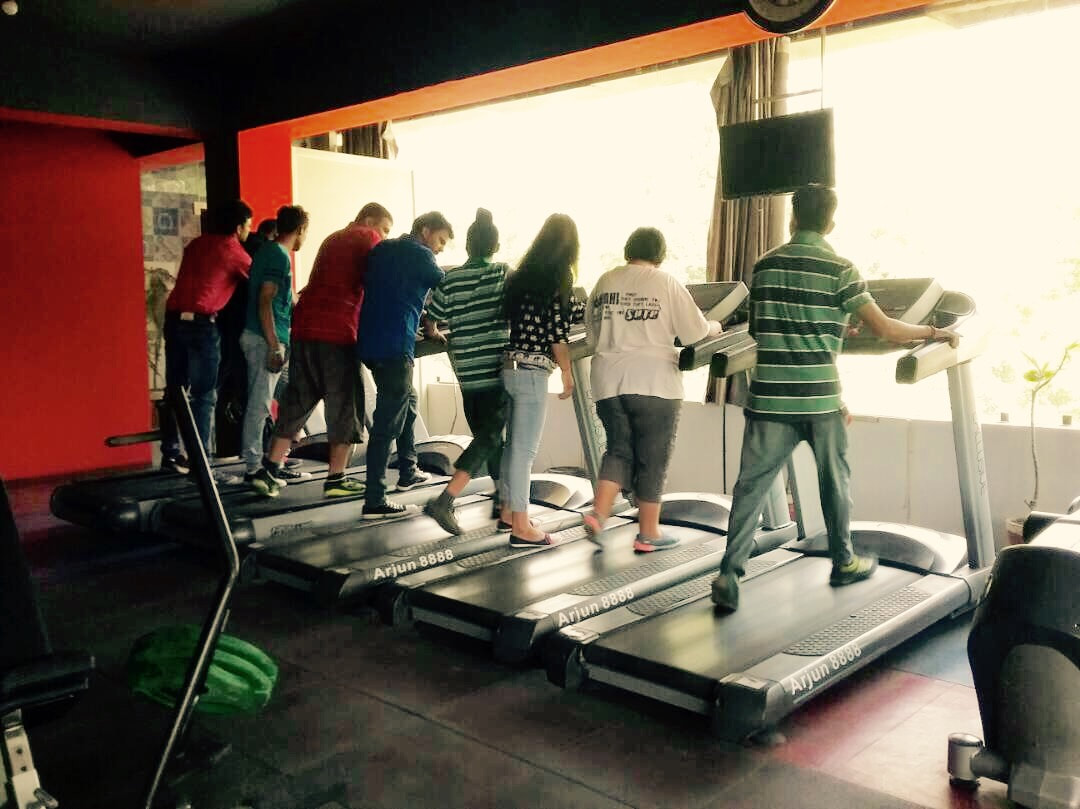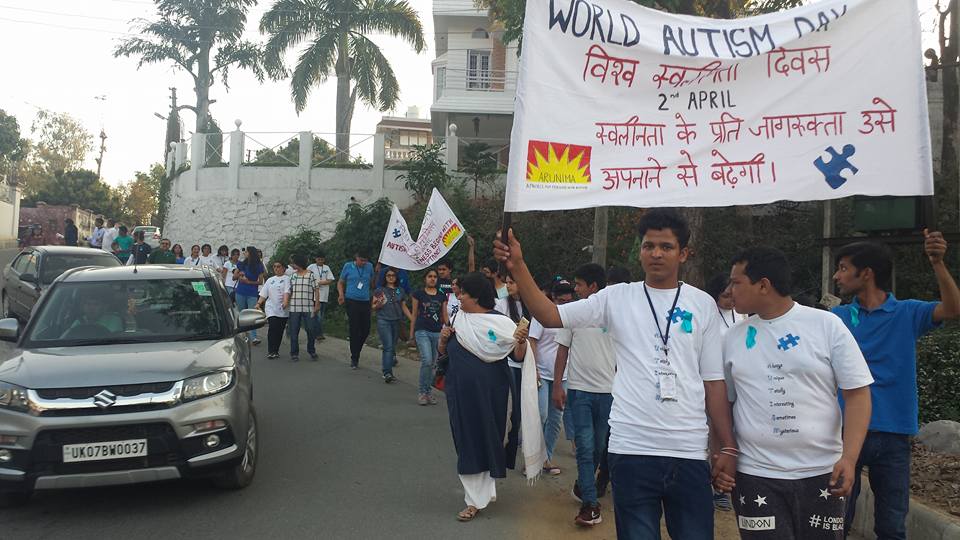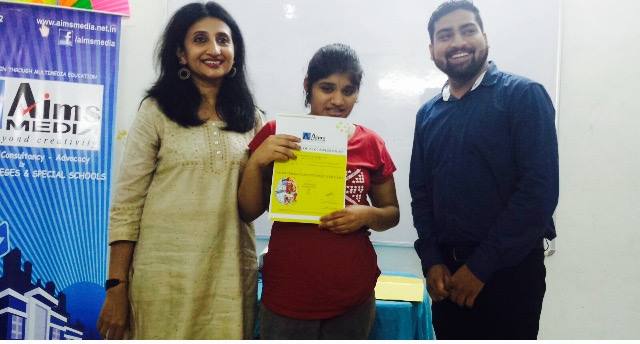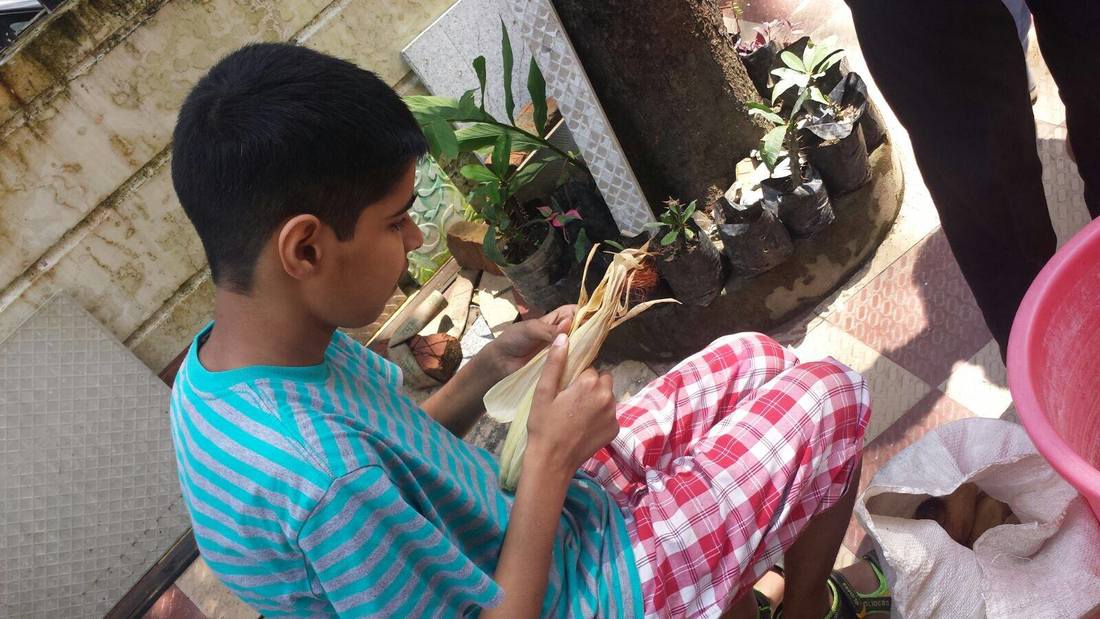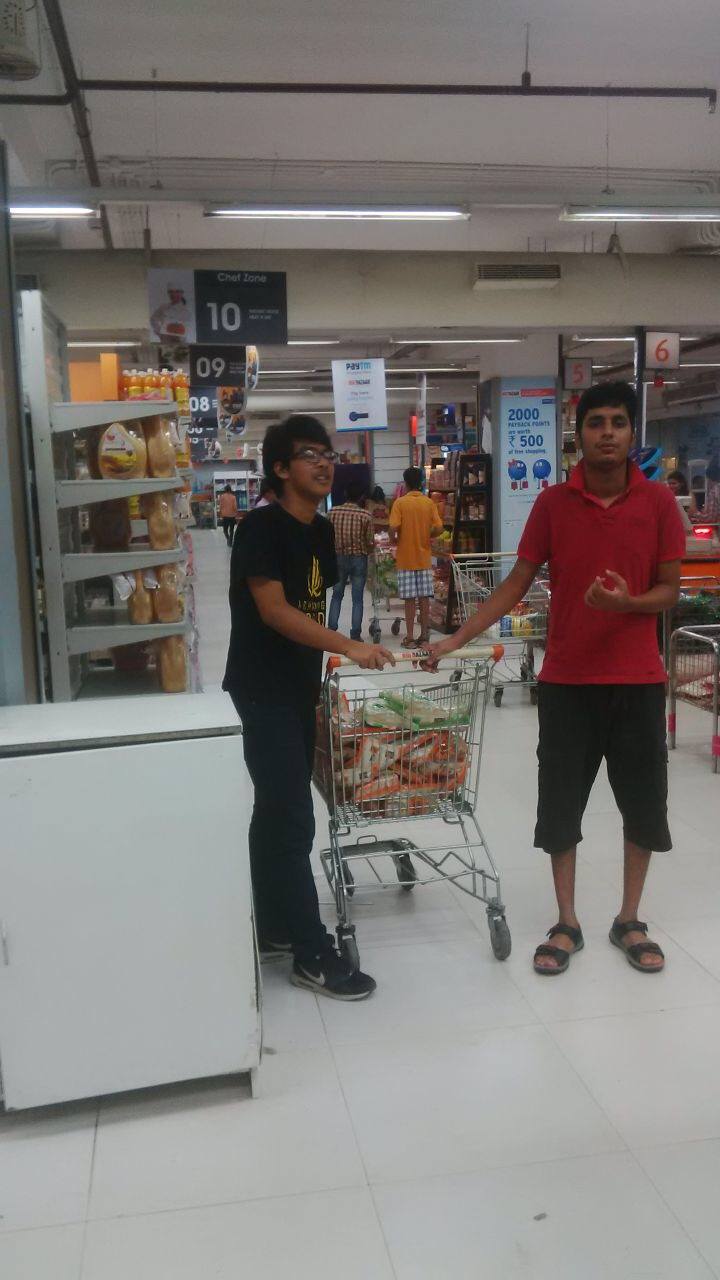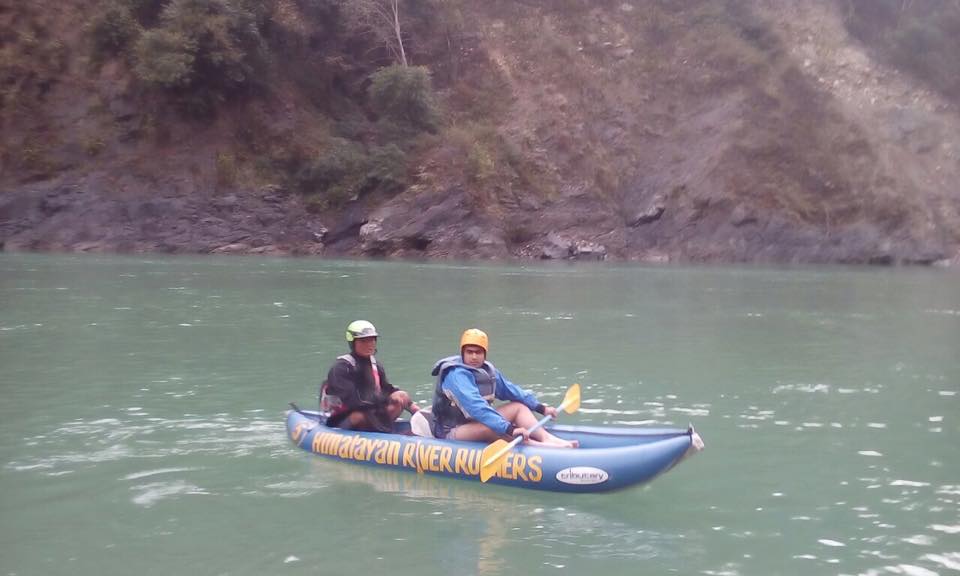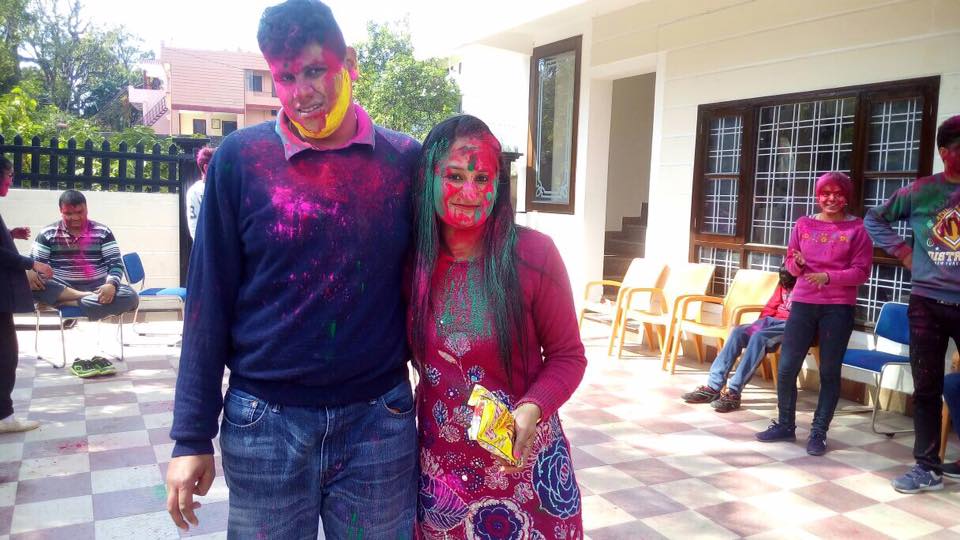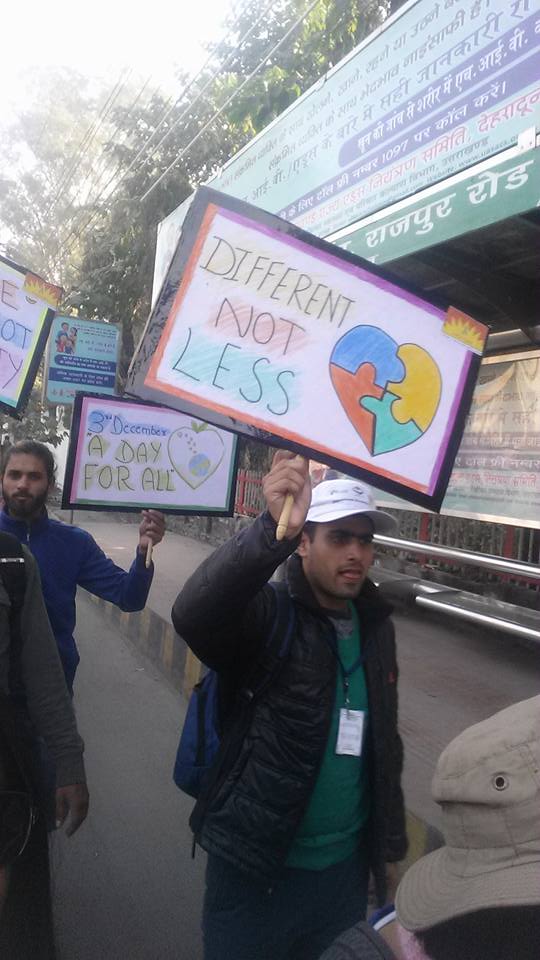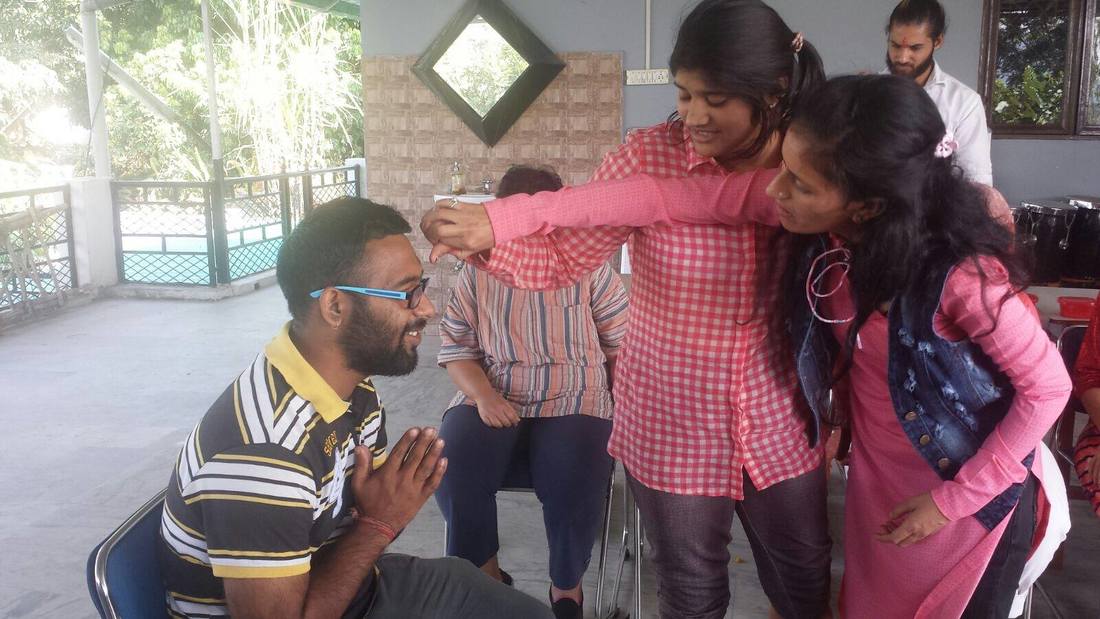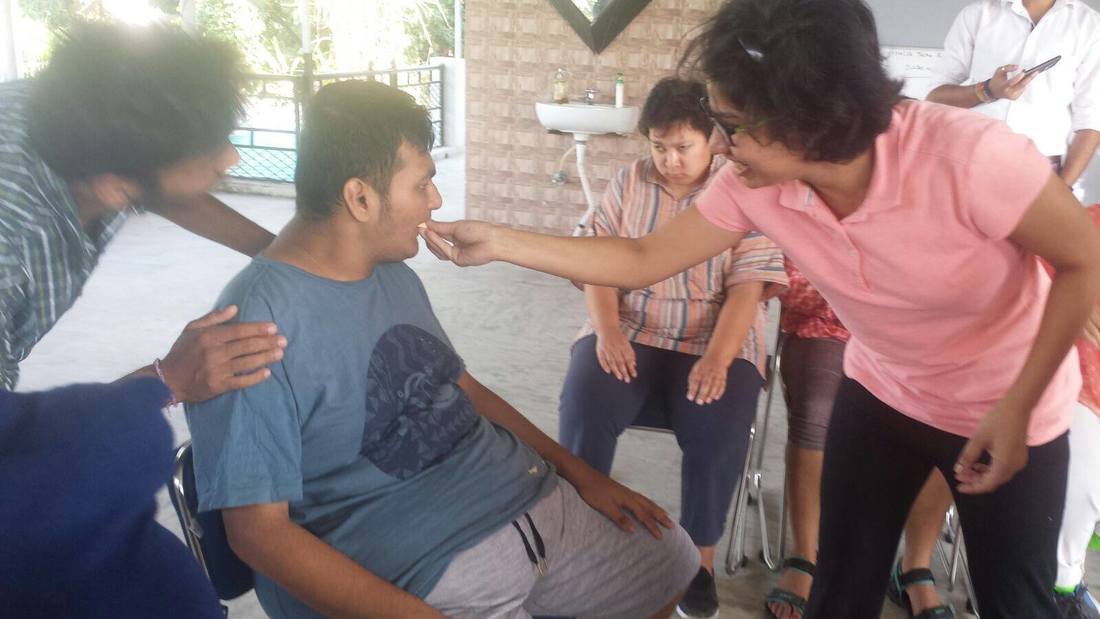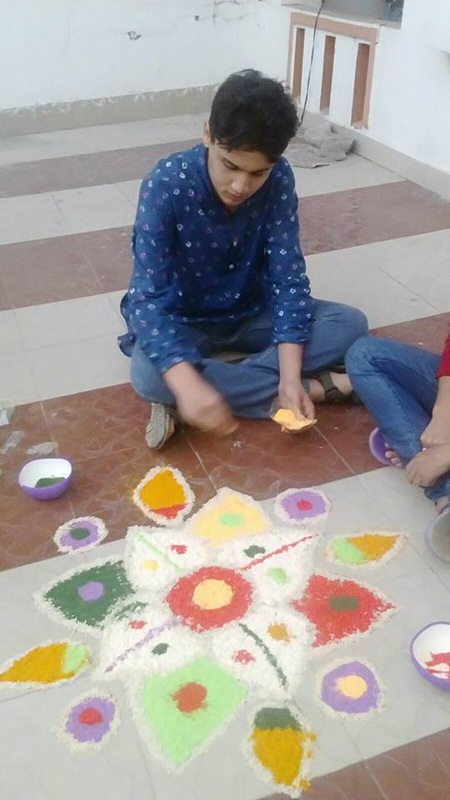The Office
Arukriti’s is the 6-day office space available to our adults. Each adult is assessed based on their hobbies, skills, and developmental level and trained in life skills, job skills, vocational and cognitive activities.
Every aspect of “work” is based on an individual’s personalised growth and developmental plan in order to promote the highest level of independence.
Assisted Living Centre - Our Residence
ARUNIMA’s Assisted Living Centre which is a residential program is the first of its kind for persons with disability in India. We use the term Assisted Living Center because the setup is not meant to be a care giving “home” but a place for rehabilitation, lifelong care and continuous growth.
The residents are assessed at the onset and individualised educational programs (IEPs) designed for them based on this thorough evaluation. These programs are set up to help the residents learn to live fulfilling lives, as independently as possible. IEPs are implemented by staff that are trained specifically for the purpose.
What We Do Together
Social Skills Training
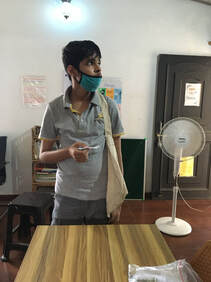
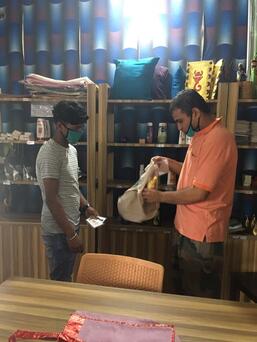
“Many children and adults on the autism spectrum need help in learning how to act in different types of social situations. They often have the desire to interact with others, but may not know how to engage friends or may be overwhelmed by the idea of new experiences.”
Here at ARUNIMA, we realise the importance of leaning Social Skills in real life situations. We believe in taking our Friends out into the amazing community of Dheradun to facilitate social development.
Some of our favourite places include restaurants, shopping malls and shopping for essentials
While there is a focus on skills taught specifically in the classroom, the learnt skills are quickly generalised to real life situations.
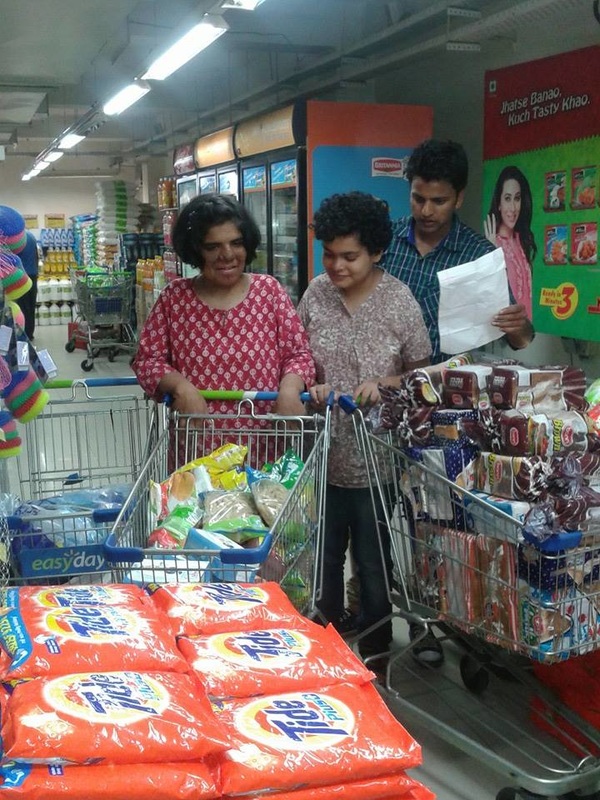
Daily Living Skills
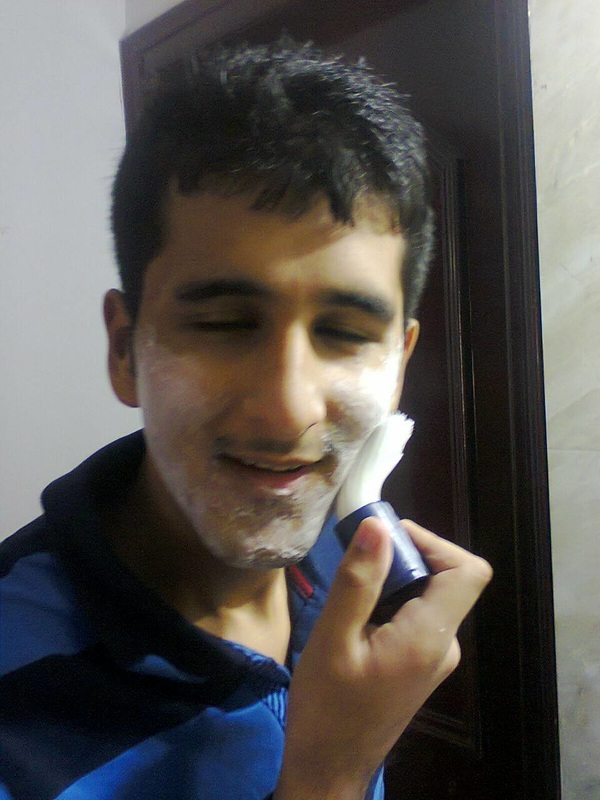
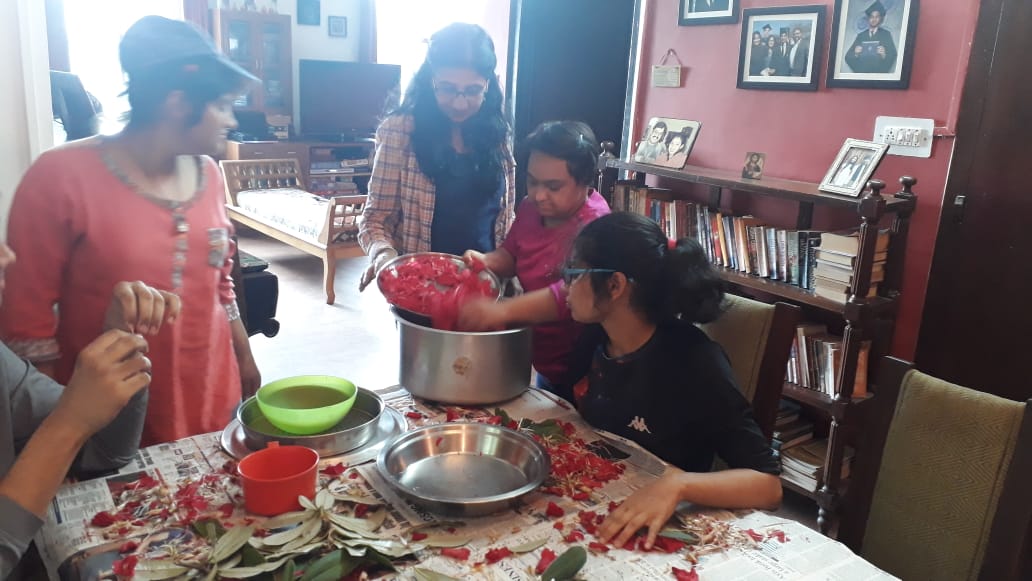
Daily Living skills are also known as Self Help Skills: These are some of the most important lessons and skills individuals learn.
Here at ARUNIMA, we strive to reach independence in everything that we do. We focus on developing life skills like bathing, toileting , brushing etc.
These skills are broken down into simple steps, and students are taught systematically to achieve each step till they master the whole activity. Visuals in every place possible are an important aspect of learning.
Behaviour Management
“Behaviour does not occur in isolation. Behavior is communication. Identifying the ABC’s : Antecedents, Behaviour, Consequences of behaviour and then working on them ensures a high degree of success.”
Here at ARUNIMA, we believe it is important that our Friends develop their own identity and personality. In everything that we do, there is a lot of importance given shaping and encouraging good behaviour.
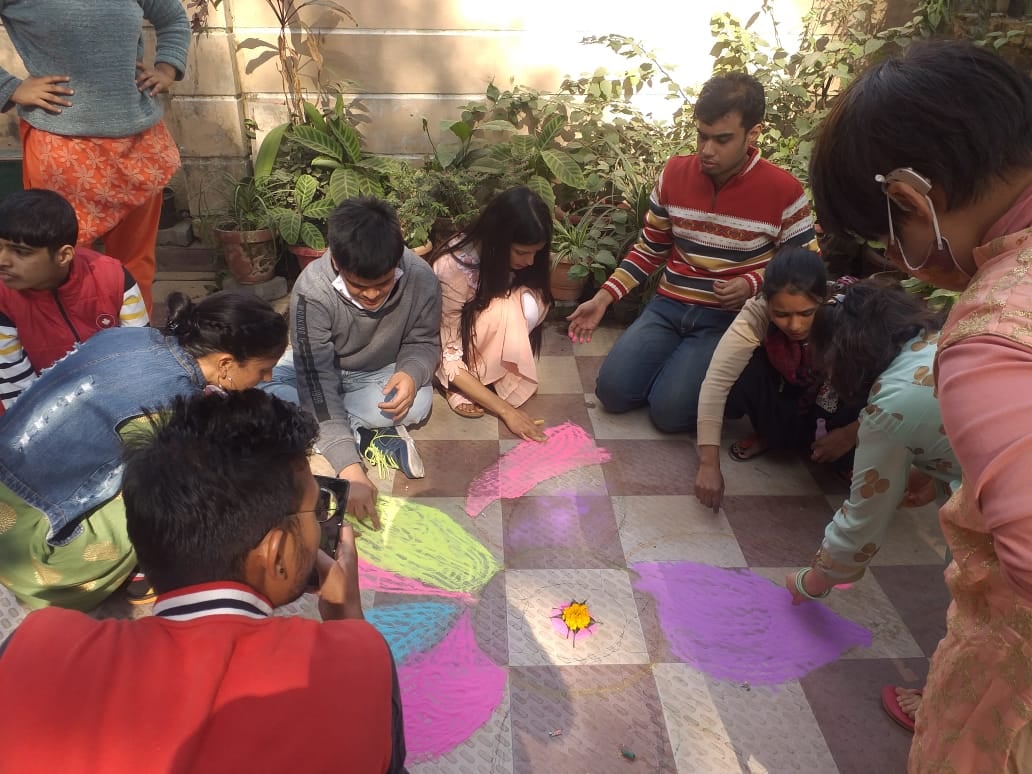
Life Skills Training
From stopping autos to making calls, from making riding a cycle to cooking, Here at ARUNIMA, teaching life Skills very specifically helps our service users reach a higher levels of independence.
COVID Sanitisation Process
Learning how to sanitise using a Work System. This process allows our Friends to go from a ‘dependent’ process, where they depend on staff to help, to leaning how to do the whole process on their own.
Skills & Hobby Development
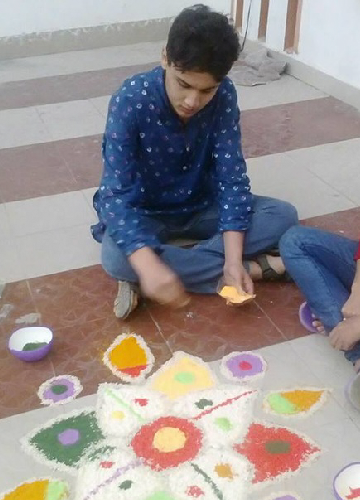
Here at ARUNIMA, vocational Training and Hobby Development are a regular part of our program. Weekly cooking lessons, as well as daily activities ensure that our service users have a full day of learning and development.
Job Skills
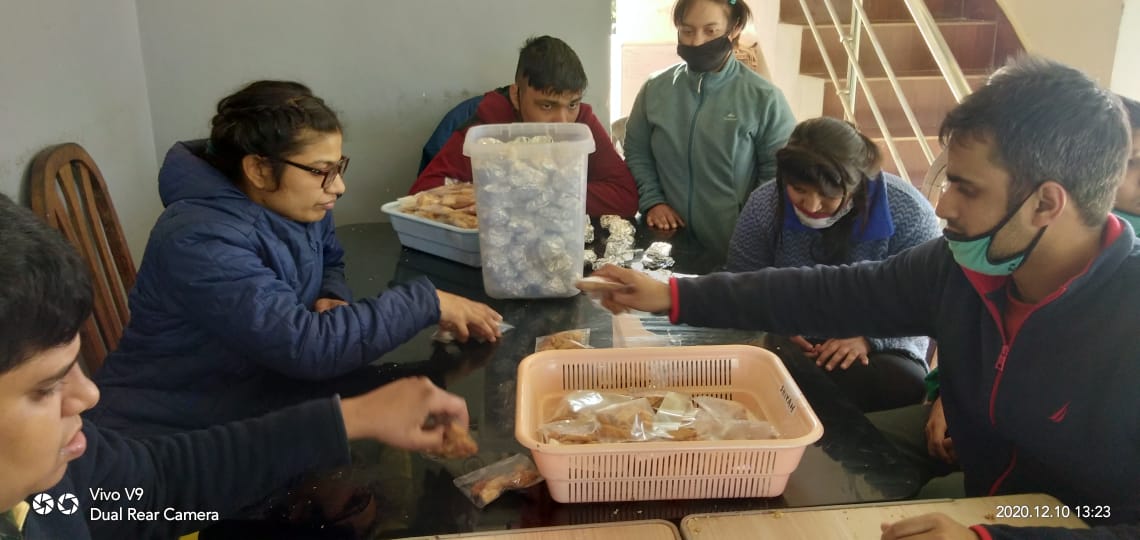
Using the calculator, working on Excel, Sight Reading and Writing these are all skills that are going to come in handy, not just throughout our Friends’ lives, but also in the professional work force.
Here at ARUNIMA, our educators are constantly working towards the goal of developing work-skills in the hopes of opening opportunities for our friends to join the community’s work force. Our Friends are constantly learning these skills to the best of their abilities.
Activity Gallery
Since 2011, the NGO has served adults with Autism and Developmental Disabilities from various socio-economic backgrounds, cultures, and ethnicities with the simple goal of striving to create a world better and more acceptable to all its people.
As a contribution to the next generation of professionals in various educational institutions, ARUNIMA sees its responsibility as being allies and educators in this area. We strive to share our knowledge and skills, based on the hands-on experience we gain every day.
ARUNIMA offers the following training seminars to Colleges, Universities, and other Professionals in their field:
- Challenging Behaviors & Autism
- Safety & Protection of Individuals who are Vulnerable
- Communication & Listening
- Disability & Ageing: Changes in Programming
- Independence & Personal Growth
Challenging Behaviors & Autism
Key points
- It’s common for individuals with Autism or who are differently abled, to behave in challenging ways.
- If you understand why individuals with Autism behave in certain ways, you can work out how to change the behaviour and help the individual manage it.
- When individuals with autism can manage their own challenging behaviour, they can progress towards being more independent and self-reliant.
Background
ARUNIMA’S staff are trained in-house to manage and deal with daily challenging behaviors. They learn how to implement positive redirection strategies, reinforcement, and other positive teaching methods.
While our in-house trainings focus on modifying and correcting challenging behaviors, it also calls for a high standard of safety, dignity, and respect towards the individuals we work with.
Focus
The goal of ARUNIMA’S teaching seminar is to provide the knowledge and assistance required by the next generation of young professionals. Some areas that our teaching seminar focuses on are:
- Aggression & Self Injury
- Communication & Social Problems
- Psychiatric Conditions Common to People with Autism. (Ex. Anxiety, Depression, etc.)
- Repetitive/Cyclical Behaviour
- Other Challenges Common to Autism (Ex. Sensory sensitivity, sleep issues, etc.)
Outcome
-
- By the end of the seminar, students will have a deeper understanding of challenging behaviors, and the reasons for why the behaviors may present the way they do.
- Students will have the ability to communicate with, ask questions, and clear doubts Challenging Behaviors from trained professionals with lived experiences.
- Students will be exposed to the realities of the field
- Lastly, students will have real-life experiences that match to their syllabus, thus expanding their understanding.
Safety & Protection of Individuals who are Vulnerable
Key points
- Ensure individuals who are vulnerable can live safely & free from abuse & neglect
- Empower individuals who are vulnerable, by encouraging them to make their own decisions and provide informed consent
- Prevent the Risk of abuse or neglect, and stop it from occurring
- Promote their well-being and take their views, wishes, feelings and beliefs into account.
Background
Safeguarding the individuals we work with is vital when the individuals are a part of vulnerable groups. It helps to ensure that your students can carry out their duties knowledgeably and safely when they enter the workforce. At ARUNIMA, working with vulnerable adults, it is of our top most priority to enforce strict safeguarding policies and procedures.
Our seminars focus on the importance of these safety policies and procedures. Our mission is to ensure that future young professionals and leaders are adequately trained to carry out their safeguarding duties competently.
Focus
The goal of ARUNIMA’S teaching seminar is to provide the knowledge and assistance required by the next generation of young professionals. Some areas that our teaching seminar focuses on are:
- Cases of abuse and neglect being missed
- An increase in the cases or severity of abuse and neglect if they go unnoticed
- Vulnerable adults and children being treated with a lack of compassion or empathy
- Increased confusion and distress for individuals who are suffering but do not know who to talk to. This could adversely impact their behaviour, so you might notice more outbursts
- Loss of dignity and liberty for vulnerable adults
Outcome
- Understand which individuals are at risk of harm or are particularly vulnerable
- Recognise tell-tale signs of neglect, discomfort and abuse
- Effectively communicating with vulnerable groups
- Increase trust in your work-space
Communication & Listening
Key points
- Language Characteristics & Methods are different for each individual; it is our job as service providers to Recognize different Methods, and Listen
- Communication also includes the understanding and use of non-verbal communicative behaviours (eg. eye-contact, body-use, gestures, etc.).
- Respect, Warmth, Genuine, and Empathy are vital when communicating
- Listening is a skill that professionals develop in the field
Background
Communication is not just talking. There are many visual and other cues that help professionals understand what another person is saying. As service providers, it is not just what someone says that helps us understand them, but how they say it: their facial expression, body language, gestures, eye contact and the context in which they are responding.
People on the autism spectrum, or those with developmental disabilities, have difficulty processing non-verbal cues, or may also use non-verbal communicative methods themselves. This means they might not hold eye contact or use body language in expected ways. They may misunderstand or misuse gestures or have a lack of, or different, facial expressions, which can make their social interactions challenging and sometimes confusing.
Focus
The goal of ARUNIMA’S teaching seminar is to provide the knowledge and assistance required by the next generation of young professionals. Some areas that our teaching seminar focuses on are:
- Understanding how Autism & Developmental Disabilities impact communication
- Parents and Caregivers should be in-tune with/ trained to understand and communicate with their children
- Alternative communication Techniques
- Sign language OR Gestures
- Written words, Pictures, photos, Objects, or Videos
- Computers, tablets, or other electronic devices
Outcome
- Understand the impacts of right and appropriate communication
- Highlight the importance in having a channel of communication
- The importance of “Asking”
- Various modes of communication that are available to professionals
- Communicating with parents and caregivers
Disability & Ageing: Changes in Programming
Key points
- Skill development and activities develop and progress with age
- Cognitive in Autism and Developmental disabilities, decline, and dementia risk
- Treatment and care of older adults varies with age
Background
Like everyone else, people with Autism and Developmental Disabilities move through significant life changes. Their quality of life depends not only on the foundation provided in childhood, but also on ongoing supports that are specific to their educational, medical, social, and recreational requirements.
For individuals with Autism or Developmental disabilities, the concept of ‘ageing’ brings about changes in the individual’s personal and social life. As professionals, we must accommodate the pressing needs for supports and programs for people on the spectrum, across their lifespan.
In addition, it is important to be mindful of the changes in the care needs as well as the mental, emotional, and physical changes that take place from mid-life onwards.
Focus
The goal of ARUNIMA’S teaching seminar is to provide the knowledge and assistance required by the next generation of young professionals. Some areas that our teaching seminar focuses on are:
- Ageing and the call for a change in day-to-day activities
- How professional training and development as service providers needs to change as the needs for those we are serving changes
- How ageing increases the risk of additional mental health difficulties, physical requirements, etc.
- Access to services and supports that maximize independence and secure the highest quality of life
Outcome
- Understand the challenges that arise as the individuals you work with age
- The importance of altering programming strategies, planned activities, etc.
- Cognitive ageing versus Physical ageing
- Age and the development of mental health disorders, physical ailments, etc.
Independence & Personal Growth
Key points
- The level of ‘Independence’ differs person to person
- Passion, skill, and interest can drive development in personal skills
- There are various degrees and stages of independence – and every stage is a celebration
- The importance of Routine in domestic and personal care
Background
An individual with Autism or Developmental Disorders can live independently as an adult. However, not all individuals achieve the same level of independence. The focus of intervention services is to motivate the individual to achieve their highest possible level of independence. This includes in their social life, personal life, or professional life.
ARUNIMA’S vision is to enable a life with dignity and the highest degree of independence possible. Every growth plan is based on an individuals’ abilities and skills. Our goal is to motivate young professionals to understand the importance of independence and the methods in which to achieve them.
Focus
The goal of ARUNIMA’S teaching seminar is to provide the knowledge and assistance required by the next generation of young professionals. Some areas that our teaching seminar focuses on are:
- Methods to strengthen personal daily skills
- How to structure daily routine and house hold chores
- Methods to enforce Community and Personal safety skills
- Techniques in building independence around personal hobbies, vocational, & leisure skills
Outcome
- Understanding the importance of individualized growth plans based on each person’s passions, interests, and skillsets
- The methods in which professionals can create a semi-structured daily routine that eventually is followed without any prompting
- Being aware of the dangers of over-reliance, and its contribution to poor long term outcomes
